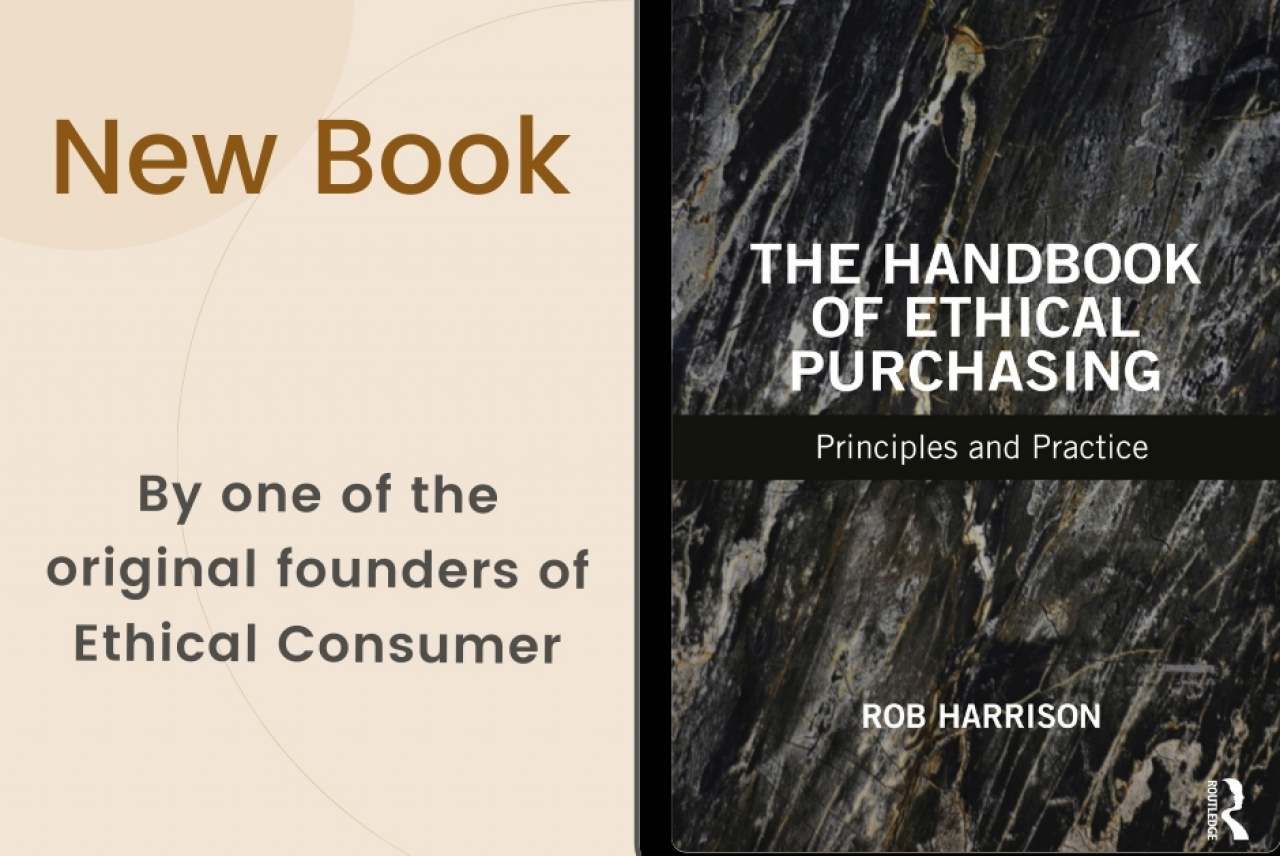An introduction to The Handbook of Ethical Purchasing: Principles and Practice
In October 2021, Rob Harrison, one of the original founders of Ethical Consumer, published a new book, The Handbook of Ethical Purchasing: Principles and Practice. In this article he introduces the key themes of the book.
October 2021
Bringing more than 30 years of experience in making markets work towards more ethical goals, the Handbook of Ethical Purchasing is designed to help:
- ordinary consumers navigate greenwash
- ethical companies to avoid some of the classic errors of selling to ethical buyers
- local authorities to deliver social goals through purchasing programmes
- campaign groups to create pressure on unethical companies
- everyone to navigate the contested world of ethical labels and standards
According to Rob, "When we began talking about buying ethically in 1989, very few people had any idea what we were talking about. Nowadays, many thousands of people around the world work professionally on everything from the tracking of carbon footprints and modern slavery in company supply chains, to campaigners trying to address the unsustainability and injustice driven by some palm oil and plastics manufacturers.
We also know that educational and training materials for people wanting to practice ethical buying and selling within institutions or just at home, and on wanting to learn about standards setting and the political pressures they will encounter, are thin on the ground. The Handbook of Ethical Purchasing is therefore designed to help both ordinary people and industry professionals to understand the movement towards ethical buying, its political background and, most importantly, how to become involved more effectively."
The book's chapters look at different types of purchaser, company and campaigner in turn as follows:
- Basic Principles
- Ordinary Citizens
- Campaigners
- The Role of Multinational Companies
- Local Authorities and Other Public Bodies
- The Role of Governments
- Smaller Companies, Charities and Social Enterprises
- Ethical Labelling Schemes
- Selling to Ethical Purchasers
- Why It's Important
The book is written as a series of interlinking principles and introduces the language and key techniques that people are beginning to use to address the moral, practical, and political problems that commonly occur.
Most of all, the book shares insights into the possibilities and limits of ethical market campaigning, and operates as a practical handbook for people across all industries and sectors to become involved in the important changes that need to be made in this vital transition to more ethical economies.

